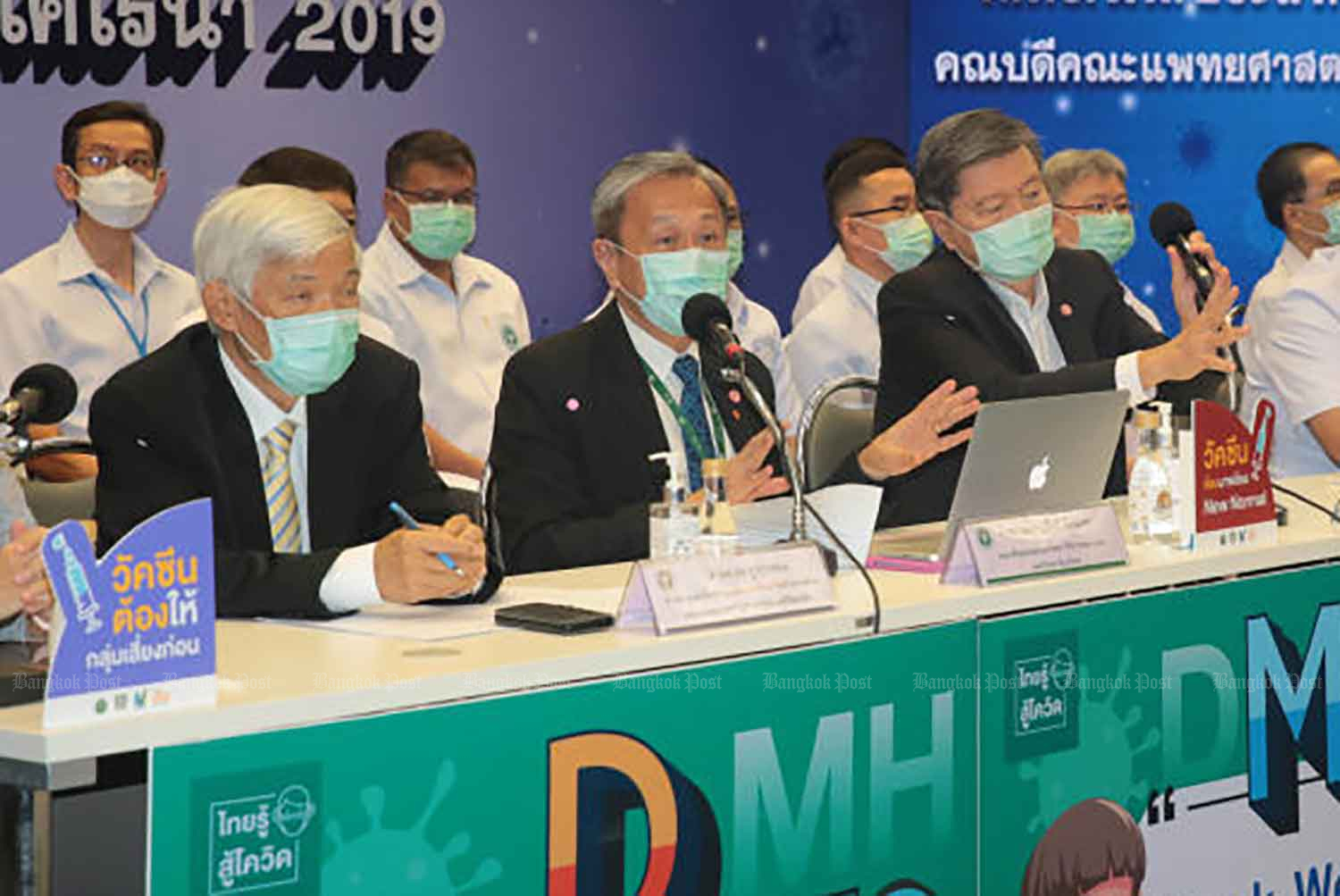
Cabinet ministers abruptly postponed their Covid-19 inoculations planned for Friday after several European countries suspended use of the AstraZeneca vaccine on reports of adverse reactions in some patients.
The prime minister and other cabinet ministers were scheduled to be vaccinated at the Bamrasnaradura Infectious Diseases Institute, at the Public Health Ministry in Nonthaburi province, on Friday morning.
Some had been set to receive the AstraZeneca vaccine, and others China's Sinovac vaccine. All vaccinations were suspended.
Prof Dr Prasit Watanapa, dean of the faculty of medicine Siriraj Hospital of Mahidol University, told a press conference at the ministry that AstraZeneca had sent batch ABV 5300, one million doses, of its vaccine to 17 countries in the European Union.
After the inoculations started, one vaccine recipient died and many others developed blood clots in Denmark, he said.
The Danish government then suspended inoculations with the vaccine for two weeks to allow further investigation. Iceland, Ireland, Norway, Austria, Lithuania, Luxemburg, Estonia and Latvia followed suit, he said.
The investigation was being led by the European Medicines Agency.
The EMA confirmed the safety of the AstraZeneca vaccine, but said it would investigate the matter.
"The EMA has compared the incidence of blood clots between vaccine recipients and non-recipients, and they are not different. This is the reason why EMA has indicated that there should not be any relation to the vaccine," Prof Prasit said.
He also said the AstraZeneca vaccine delivered to Thailand was not a part of the controversial batch.
If the investigation clears the vaccine, inoculations will resume, Prof Prasit said.
Prof Dr Yong Poovorawan, head of the Centre of Excellence in Clinical Virology at Chulalongkorn University, said vaccination naturally preceded undesirable symptoms in some recipients, and then investigation simply followed to verify if such symptoms were linked with the vaccination.
He said that many elderly Africans and Europeans who were inactive could develop blood clots in veins, which then blocked blood from reaching the lungs. These symptoms occured to Europeans three times more often than to Asians.
"We believe that genetic factors are involved in the illness, which occurs in normal life. Three million doses of the vaccine from this lot were injected. Twenty-two of the recipients developed blood clots, and one of them died. This is an incidence of seven in one million people," Prof Yong said.
Thailand received 117,000 early doses of AstraZeneca vaccine last month.
"With this postponement, we are not saying that the vaccine is problematic. This postponement is to wait for verification whether there is any implication with the vaccine or that batch of the vaccine.
"That batch was produced in Europe. We use a batch made in Asia," Prof Yong said.
In a statement issued on Friday, AstraZeneca said: “An analysis of our safety data of more than 10 million records has shown no evidence of an increased risk of pulmonary embolism or deep vein thrombosis in any defined age group, gender, batch or in any particular country with Covid-19 Vaccine AstraZeneca.
"In fact, the observed number of these types of events are significantly lower in those vaccinated than what would be expected among the general population."
